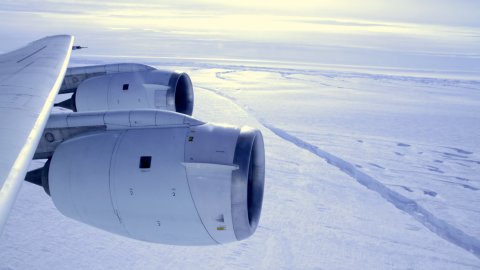Using Antarctica to Test the Limits of the Human Mind for Space Travel

The dream of sailing off to the stars sounds quite romantic. But the realities of living through modern-day space travel can be taxing.
Humans are placed in a harsh, isolated environment in order to make the journey. One can only wonder how mission control is able to prepare people for such conditions. Not to mention choose the right people to handle these ordeals.
Becky Ferreira from Motherboard writes on how the European Space Agency (ESA) is able to anticipate breaks in the human condition: by dispatching a 13-person research team to Antarctica. It’s as isolated as the International Space Station in some regards. The last plane out of there left in the first months of February and won’t be able to return till November. So, in all respects, the team is quite alone.
In addition to undergoing six months of isolation, four of them will be in complete darkness, as the sun won’t rise above the horizon for several more months. All the while, the scientists will busy themselves with research in the barren lands to find evidence of life that has managed to thrive — most likely in the form of bacteria, fungal, or viral colonies. The setup almost sounds like something out of a horror movie, and Ferreira agrees: crew members will be recording video diaries daily to monitor their emotional and psychological journey through this experiment; while also taking the crew’s vitals and sleep patterns. Not to mention the participants will be enduring higher elevations, which means low air pressure and oxygen levels.
What’s more, the same experiments will also be run at a separate site with a different crew at the Halley VI station in partnership with the British Antarctic Survey. The participants in this other experiment will have the benefit of enjoying elevation conditions at sea level.
David Vaughan, British Antarctic Survey’s director of science, commented on the experiments in a press release:
“We are committed to supporting excellent science in Antarctica in all disciplines. We are hugely excited to be hosting these new experiments that may help prepare for, perhaps, the biggest adventure in history, a manned flight to Mars.”
Read more at Motherboard.
Photo Credit: NASA Goddard Space Flight Center/Flickr





